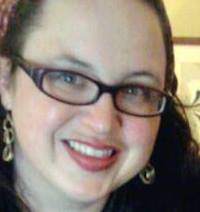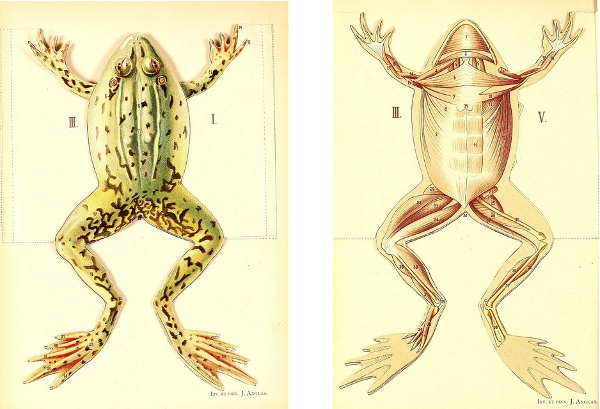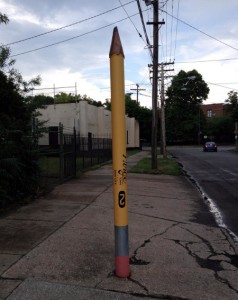My Descent Into Muskmelon/Muskrat Madness
Our favorite game is Muskmelon or Muskrat.
Think of anything in the world, then ask:
Is it closer to a muskmelon, or a muskrat?
––Henry Goldkamp, “Forcemeat,” Mid-American Review, issue 42.1
That’s it. That’s the game that “Forcemeat” is built around. Before adapting this poem into a full-blown board game, I liked it just fine. Even while playing it, I had no idea how drastically this remix would change my experience with the poem. Expanding on it gave me the vocabulary to articulate facets of my identity which I assumed would go unexplained to my family for the rest of my life.
“Forcemeat” was about––as I initially read it––a normalizing system of logic trying to draw sense out of personal and global catastrophe. (Don’t get me wrong, I promise it’s also a lot of fun.) At points, there’s an absurdist disconnect to the dialogue between the two speakers that reminded me of Waiting for Godot (which is to say I’ve read only one piece of absurdist literature.) It wasn’t my favorite in Issue 42.1, (that would be “Bone Town” by Angie Macri,) but it was the favorite of our hard-working (one could say overworked) Poetry Editor. As a Christmas gift for them, I turned the poem into a structured board game for the MAR staff to play.
Obviously, one need only read the opening three lines of the poem to be able to play informally in pairs. It’s as simple as “I Spy” and makes an even better road trip game. When playing in this format, though, one’s decisions go unanalyzed. Each player independently develops their own concept of the melon/rat binary using the fodder their partner supplies. This mimics what we see between the two speakers of “Forcemeat,” who have already established their own codes which (especially if you haven’t been thinking about it for six goddamn months) seem alien and inaccessible.
Our adaptation requires much more intentional analysis––or at least prediction. Players advance on the game board by voting in the majority on increasingly less and less melon/rat-like concepts, within a matter of 5 seconds. The first player to reach the end of the board wins. (Check out the companion post for the full rules and PDFs for the game.) We surprised the 30-strong MAR staff by bringing it to a meeting at the end of last semester.
I had no idea that making the game a communal affair would make it feel so … vulnerable? As our Poetry Editor puts it, voting publicly feels like “baring your soul” ––despite the silliness. Not only do you flounder to quickly draw out increasingly unsubstantiated connections between the given concept and a rat or melon, but it is now something you can get “right” or “wrong.” Your mind is on full display with each vote.
At least, it felt that way. When players landed on red “debate” squares and were forced to justify the melocity or ratitude of that round’s concept, one found that their “allies” share their verdict for completely different reasons. (Example: My friend and I agreed that “butterfly” is a muskmelon. While I thought of the sugary nectar butterflies collect, though, they connected the melon’s rind to the butterfly’s cocoon.) Even one’s opponents used their same reasoning to draw the opposite conclusions. (Example: I thought “stiletto” was a muskrat due to the muskrat’s sharp teeth, but the Poetry Editor thought about the shoe’s sharp heel piercing a melon.) The rules players developed for both categories only grew more abstracted from the physical reality of fruit and Rodentia as we progressed. A huge part of the game (if you played to win) was predicting where those rules were leading your colleagues, but when it was time for a debate, everyone was reminded of how wildly different their perceptions were from everyone else’s. A sense of isolation settled on the room as each player realized that they were the only one correctly interpreting the energies of melons and rats.
This sensation of simultaneous exposure and disconnect enhanced the absurdist feeling I got from the original poem. It drew my attention to the places where the speakers of “Forcemeat” miscommunicate and disagree––it put more emphasis on the end, where the roadkill incident drives a wedge between them. While playing––and now, while reading––I felt a push and pull of intimacy and isolation. It echoes what it’s like to share an experience with someone and find that you had wildly different perceptions of it. I didn’t see any of this in the poem before the board game.
This brings me to my main reason for being obsessed with the “Forcemeat” cinematic universe.
Imagine living in a world where everything is viewed through the lens of this binary: muskmelons versus muskrats. This binary has a largely unspoken ruleset that eludes you, although it seems that everyone around you parsed it quickly and easily. Yet as you discuss this with others, their interpretations prove to be inconsistent with those of your other peers and even internallyinconsistent. Despite this, everything––even YOU––can be cleanly categorized this way. You are deemed muskmelon. Your given name indicates this. On your birthday, you receive muskmelon gifts. You’re expected to wear muskmelon clothes, watch muskmelon shows, pursue muskmelon interests. Every single person who sees you looks at your body to judge: muskmelon or muskrat? They treat you, speak to you differently based on that judgment. Even if you’re hard to sort. Especially if you’re hard to sort.
You feel utterly alienated by this system. The emphasis put on it and the rules that govern it feel absurd, pointless, and limiting. It’s not even that you resent melon life or yearn for rat life. You just want your life to be a muskmelon and muskrat buffet. You don’t want to choose based on that arbitrary status, but rather your own preferences. But alas, when a human is born, the first words it hears are “it’s a melon!” or “it’s a rat!” Whichever they are judged as defines the rest of their life.
…
So, the plot twist here is that I feel much more like a muskrat on the melon/rat binary than I do like either a man or a woman on the gender binary.
Playing “Forcemeat” deeply spoke to me as a nonbinary person, particularly as a nonbinary person on the autism spectrum. As a kid, social norms didn’t (and still don’t) come easy to me, including the gender ones. (Examples: Women wear makeup. Men don’t cry. Women should be skinny, men muscular. What the hell are you talking about?!) Some will offer evolutionary explanations for such classifications, but I would counter that the way our pre-civilization ancestors survived shouldn’t have such a strong bearing on how we live today. Furthermore, our understanding of our evolutionary past keeps evolving (such as with the men = hunter, women = gatherer myth.) Some cite biochemical reasons for their way of sorting, but in many cases, even when they are scientifically sound, one could argue with similar reasons for the inverse expectations. (If testosterone grants men social leniency to be more expressive of frustration and anger, why does menstruation not call for a similar grace?) The foundation of many of these hyperspecific categorizations are a stretch, much like the reasoning one comes up with when playing “Forcemeat”. They latch onto something like assumptions based on shaky conclusions drawn from a cultural myth of a bygone era, which itself was a departure from the previous assumption of blah blah blah blah blah.
This is all to say that engaging with this silly poem not only resonated with my experience but helped me put into words what makes me so averse, both personally and intellectually, to the gender binary.
Now everyone else, stop reading for a bit. This next part is just for my mom.
––
Hi, Mom!
I was sort of planning on this being an open secret for the rest of my life. Had Outlook not added my email signature––with my changed name and pronouns––to that message I sent you a while ago, I was going to try keeping it a closed secret. Well, as closed as I could keep it after sharing very vocally with my middle school classmates my hope that puberty would grant me hairy arms and a beard.
I’ve been so scared about trying to explain this to any of my family, not because I’m scared of being disowned––I know your love is unconditional––but because I freeze when I even try to think of how I would articulate what it means to consider oneself “nonbinary” to you. I hate arguing and I hate conflict, even in the form of the most sophisticated and gentlemanly debate. I would shatter into a million pieces if any of you responded by starting with so much as the word “But.” That’s caused me to let a gap grow between us. But now, analyzing this poem has given me the words to explain it, and I’m no longer afraid of that conversation.
Maybe you’re thinking, why not live with the “muskmelon” label and do whatever I feel like anyways? You yourself were a tomboy (or tomrat, if we’re speaking metaphorically.) In some ways you grew up to be a thomaswoman. In fact, my own upbringing didn’t pigeonhole me into a strict definition of womanhood as readers might assume, given the little “Twilight Zone” episode they just read. What makes me so sure I haven’t been a muskrattish muskmelon, or a boyish girl, or a masculine woman?
On a practical, everyday level, I feel so much more comfortable with myself outside the labels of female/male, labels which feel as irrelevant to how I carry myself as the labels muskmelon/muskrat do to most people on earth. Being referred to with she/her pronouns felt like wearing a really uncomfortable sweater that irritates my skin, a fashion choice which is liable to make me 54% grumpier on any given day. I physically felt better when I came out to my friends and colleagues as Jamie Manias, when I wasn’t referred to as a muskmelon all the fuckin’ time, when people knew that they’d likely misinterpret me if they looked at me through the paradigm of man- or womanhood.
On a touchy-feely “who am I” level, “melon” or “woman” being the core descriptor of me as a person––the noun onto which every other aspect of myself is an adjective piled on––does not feel accurate at all. To be considered a masculine woman is still to be considered, grammatically and socially, a woman above anything else. More than that, it is to be considered a woman who is bad at being a woman, according to the rules of the mutually exclusive binary. Like being a cold pot of coffee or a shy public speaker.
Maybe you’re thinking that the way people see me won’t be affected at all by my coming out, that they’ll always see me as a woman. That it’s practically impossible for anyone to mentally accept someone as “in-between” or “neither.” That this binary––even if it is as silly as a binary of melons and rats––can’t really be set aside by anyone. That could be true, especially of me. (It’s hard to divorce a pronoun like “she” from a rack like mine.) But even if the only thing that’s changed is the way people refer to me, that still makes me feel more at home in my own skin. That was a rare feeling for me before realizing this about myself.
Anyways, give Morty and Bella lots of pets for me. Keep the pool table ready, I’ll see you over Spring Break.
With much love,
Jamie Manias.
––
…
Anyways.
I often fear that I neglect my duty to this burning, burning world by wasting my time and talent on writing poetry.
But before playing “Forcemeat,” I was planning on never having this conversation.
I was terrified.
I thought I could never clearly communicate my internal experience to anyone not already well-versed in gender-ology.
Maybe I can’t. Maybe I can’t communicate it to anyone. But that’s not the point. The point is that even if nobody understands me any better, even if the writer of “Forcemeat” is appalled by my interpretation (hi Henry!), even if I’m banished from the academy for my mad science of grafting a board game to a living poem, no matter what, I found a way to explain myself to myself here. And if a poem can give that to someone, maybe I’m not wasting my time as a poet.
––Jamie Manias (they/them), Mid-American Review







